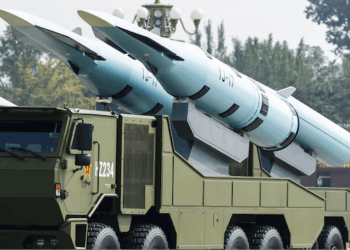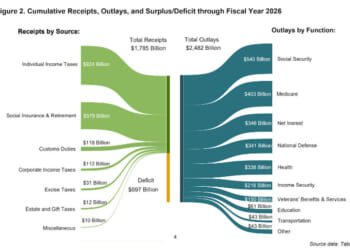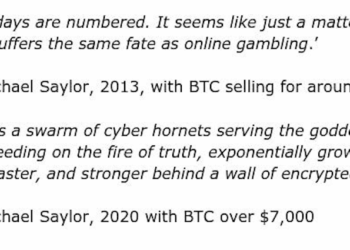By Nick Griffin
Most American patriots are probably aware that Bill Gates has become the largest private owner of U.S. farmland. The authoritative Land Report 100 reveals that Gates’s investment firm, Cascade Investment LLC, holds approximately 275,000 acres of highly productive agricultural land in America.
Click the Link Below to Listen to the Audio of this Article
The liberal computer mogul, furthermore, is still buying more land, although he is at pains to point out that this is still a tiny fraction of the country’s total farmland. But, while critics are keeping a watchful eye on Gates, a far, far bigger buying spree is steadily reducing the amount of productive land owned by American farmers.
Families whose ancestors first tamed the wilderness, or sweated and saved to claw their way out of poverty and into farming, are being dispossessed.
Gates’s farmland empire spread across 17 states, including major holdings in Nebraska, Arkansas, Louisiana, and Washington. But this is not much more than a postage stamp compared to the vast amounts of land being quietly bought up by massively wealthy foreigners.
Canadian pension funds, Middle Eastern sovereign wealth managers, European corporations and Chinese companies with close ties to the ruling Communist Party are all scrambling to buy American farmland and to control one of the most fundamental resources of any nation—its food supply.
This profound and worrying shift in the nation’s agricultural landscape has accelerated in recent years and raises critical questions about control, sustainability, and self-reliance.
As of 2025, approximately 31% of U.S. farmland, or about 274 million acres out of a total of 876 million, is held by absentee entities rather than owner-farmers. Hyper-globalist corporations Blackrock and Vanguard class as “American” buyers, but overtly foreign holdings have been increasing by an average of 2.6 million acres annually from 2017 through 2023, a net addition of about 7.4 million acres since 2021.
Nearly every state has experienced a rise in foreign-owned farmland since 2014, with renewable energy projects like wind and solar farms accounting for much of the recent growth, alongside traditional agricultural investments.
According to the Department of Agriculture’s Farm Service Agency, by 2021 foreign entities owned nearly 40 million acres of American agricultural land in 2021. That’s an area bigger than the entire state of Iowa. While official reports describe this as just 3% of privately owned farmland, this is a drastic underestimate. Much of the true ownership is concealed through shell companies, trusts, and complex LLC structures designed to shield the real owners from public scrutiny.
The following year saw a 3.4% increase, the largest single-year jump, partly due to reporting improvements. Figures for 2024 are still not in, but it is believed that a further 7.4 million acres have fallen into the hands of foreign entities hands since 2121.
The bottom line figures are sobering: in 1980, foreign ownership was almost non-existent. By 2000, it had climbed to 10 million acres. By 2010, it doubled to 20 million. By 2020, it had soared past 35 million. Today, it is rapidly approaching 50 million.
This steady encroachment, rather than a sudden land grab, allows it to unfold under the radar, yet its cumulative effect is evident in the consolidation of holdings: large entities now control swaths of land that dwarf the average family farm, which operates on just a few hundred acres. The speed is particularly notable in regions like the Midwest grain belts, where over 50% of land is rented.
Lenient federal reporting requirements under the Agricultural Foreign Investment Disclosure Act have facilitated these purchases, with minimal restrictions allowing entities to acquire land near sensitive military sites, raising national security alarms.
The impacts of this trend on U.S. economic sovereignty are multifaceted and erosive, as control over a vital resource slips into hands detached from—and potentially even hostile to—national interests.
When absentee owners treat farmland primarily as a financial instrument, decisions prioritize short-term profits over long-term sustainability, potentially compromising food security by diverting land to non-agricultural uses like energy projects or speculation.
The U.S. Air Force fears it may be even worse than that. A Chinese billionaire stealthily purchased 140,000 acres within striking distance of Laughlin Air Force Base in Texas. The Fufeng Group’s land grab near Grand Forks, N.D., raised immediate counterintelligence alarms.
Across California and the Midwest, European agribusiness corporations are buying premium specialty holdings—vineyards, orchards, and prime row-crop ground. By snapping up high-yield land, foreign firms can dictate what is grown, who provides the labor and where the produce is sent. This isn’t only foreign ownership; it’s foreign-directed production.
Saudi Arabia and the United Arab Emirates are quietly gobbling up huge pieces of U.S. farmland for one reason: water. In Arizona’s La Paz County, a Saudi company called Fondomonte owns 10,000 acres.
They pump billions of gallons of groundwater from beneath the desert to grow alfalfa, not to feed American cattle, but to ship across the ocean to feed Saudi dairy herds. These used to be fed with crops grown with fossil groundwater, but these vast underground reservoirs are now effectively exhausted.
Arabs are exporting America’s most precious resource—water—to sustain their own food chain, while American ranchers are forced to cut back under water restrictions.
Whatever the exact reason for any one purchase, the cumulative impact is all in the same direction: It diminishes America’s ability to dictate its agricultural destiny, and hence a vital part of its security and sovereignty. Economically, it undermines sovereignty by concentrating wealth extraction away from local communities, as absentee landlords often reinvest profits elsewhere, leading to slower rural income growth and job stagnation.
On private enterprise and family farms, the effects are even more direct and detrimental. Rising land prices, inflated by investor competition, make it harder for young or beginning farmers to enter the market, exacerbating an aging demographic where operators over 65 control 43% of owned land.
Family farms still constitute 9% of U.S. operations, but they face squeezed margins from higher rents and shorter leases, discouraging investments in soil health or conservation practices that require long-term commitment.
This sets the scene for even more rapid consolidation and even more foreign buyouts. The whole system favors large-scale agribusiness, stifling innovation and resilience. Tenant farmers bear the risks of production without equity gains, perpetuating a cycle of dependency that erodes the entrepreneurial spirit of American agriculture.
As family farms vanish, so do families, and then whole communities. A fundamental part of the American dream is becoming a nightmare.
Rapid and resolute government action to free American farmers from suffocating environmental regulations and from predatory banks, and to clamp down on the foreign buy outs, could still turn things around.
But America’s farmers are running out of time.
That means that U.S. independence and sovereignty are under grave threat, as well. There is no point for President Trump to talk about America’s military being the strongest in the world if the nation loses the ability to feed itself and to control its own land.
America is being conquered, not with tanks and fighter jets, but by dollars and yuan. Not by communist armies but by corporate megabucks.
Congress stays silent, because foreign lobbyists buy silence and compliance … and “none dare call it treason.”
Nick Griffin is a British nationalist commentator and writer. He was chairman of the British National Party (BNP) from 1999 to 2014, and a Member of the European Parliament for North West England from 2009 to 2014. Since then, Griffin has remained active in British politics despite being vilified for criticizing rampant immigration. You can read his work on Substack at “Nick Griffin Beyond the Pale” and on Telegram t.me/NickGriffin.
(function() {
var zergnet = document.createElement(‘script’);
zergnet.type=”text/javascript”; zergnet.async = true;
zergnet.src = (document.location.protocol == “https:” ? “https:” : “http:”) + ‘//www.zergnet.com/zerg.js?id=88892’;
var znscr = document.getElementsByTagName(‘script’)[0];
znscr.parentNode.insertBefore(zergnet, znscr);
})();

























